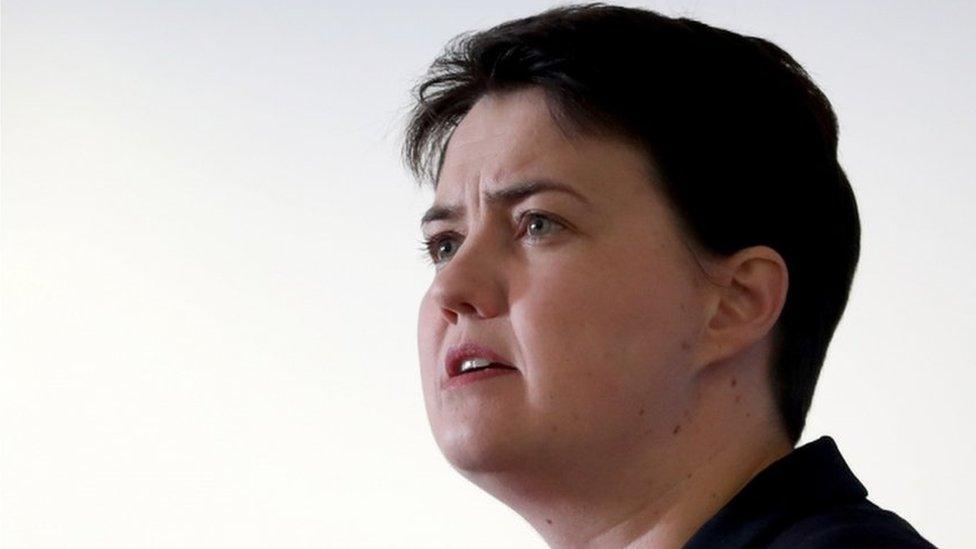Why Ruth Davidson avoided writing memoirs
- Published
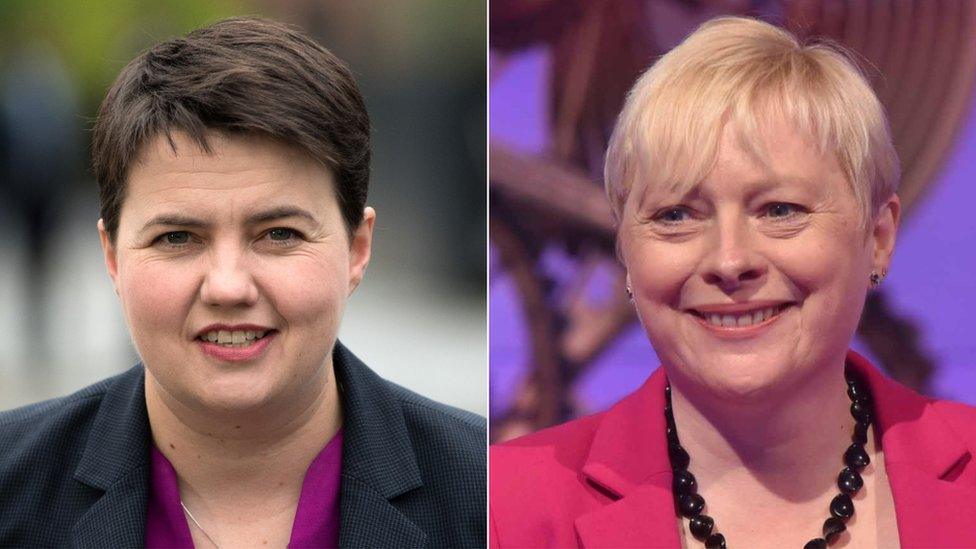
Ruth Davidson (left) and Angela Eagle
There's a famous anecdote involving Scottish Conservative leader Ruth Davidson, Labour MP Angela Eagle and the EU referendum of 2016.
The Remain and Leave campaigns were in their final days ahead of the vote on 23 June - and all eyes were on Wembley Arena for the last major televised debate.
Davidson had been chosen as the Conservative representative on the Remain side, Eagle as the Labour voice.
However, when Davidson was made aware of the proposed line-up, she pointed out some... similarities between herself and Eagle that might be problematic.
"I did ask if it wasn't narrow casting a little bit, to have two short-haired shovel-faced lesbians with northern accents on the platform," she recalls to BBC News.
"Which was my attempt to say I was happy to take a step back. Because she is probably, or was at the time, a lot better known across the UK than I was.
"I have a huge amount of respect for [Eagle]... but the whole point was we were trying to talk to the whole country."
London Mayor Sadiq Khan ended up representing Labour at Wembley alongside Davidson, while Eagle appeared in one of the other televised debates.
But the prospect of having too many people from a certain minority group - in this case gay women - is certainly an issue you don't often have in television.
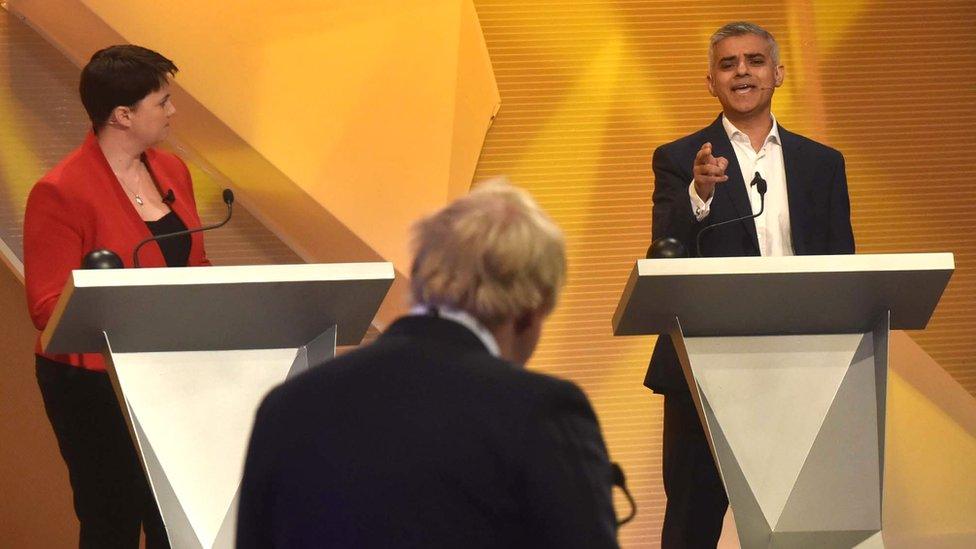
Davidson and Sadiq Khan faced Boris Johnson in the EU referendum debate
"In terms of representation we've been doing pretty well lately. Clare Balding is a champion for us all," Davidson laughs. "Sandi Toksvig, Sue Perkins, you know, we're getting out and about!"
Davidson's new book tackles these very issues of representation and equality, but for a much wider section of the population.
Women.
If you've read newspaper coverage of the book in recent weeks, you could be forgiven for assuming it was an autobiography - the headline-grabbing excerpts focusing on her own personal life and ambitions.
"Ruth Davidson RULES OUT becoming prime minster," exclaimed several headlines, external the day her book Yes She Can went out to journalists.
The 39-year-old does indeed take the opportunity to say that, while she's still keen to become the first minister of Scotland, she has no desire to be PM because of the impact it would have on her mental health.
But, she says: "I would stress that this is a book about other women... because the early publicity around this has centred a lot on me.
"There is something that's questionable about people who decide to write an autobiography in their 30s," she adds - a point which has clearly escaped most TOWIE cast members.
"I'd like to think I've got a few more miles left on the clock."
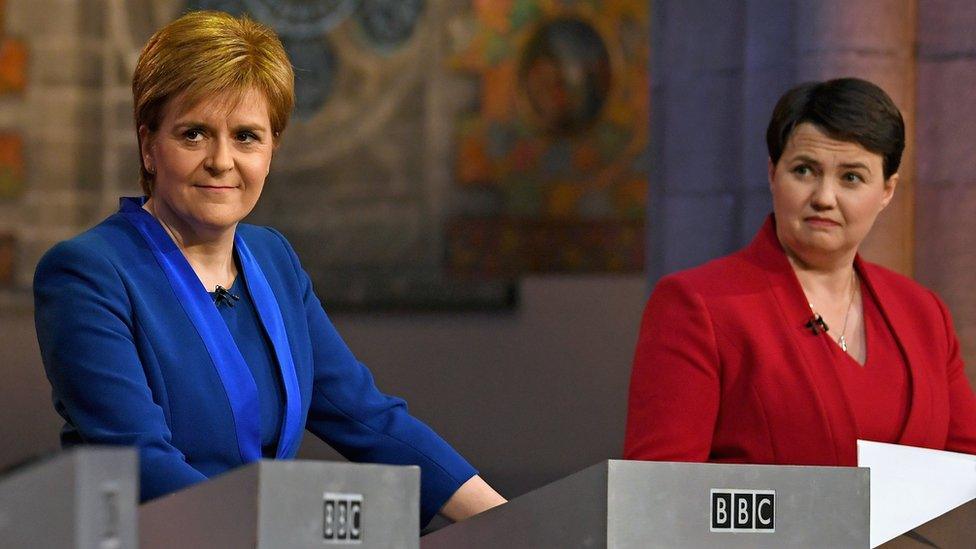
Ruth Davidson hopes to replace the SNP's Nicola Sturgeon as Scotland's first minister
Instead of the memoirs many expected, Davidson - a former BBC journalist - has interviewed 17 high profile women who have succeeded in roles or landscapes which have been historically dominated by men.
Prime Minister Theresa May is in there, as is BBC political editor Laura Kuenssberg.
Veteran magazine editor Tina Brown, Olympic athlete Dame Katherine Grainger, technology entrepreneur Martha Lane Fox and philanthropist Melinda Gates also feature.
"We decided the sectors we were going to speak about first - areas where there are far more men than women who are active - business, politics, science, technology," Davidson explains.
"And the other cohort was areas where women are quite well represented, but treated very differently - so entertainment, Hollywood, sport.
"So there are loads of famous people in there, but actually also lots of women you will never have heard of."
She points to Dr Rola Hallam, a British-Syrian anaesthetist who set up six children's hospitals during the civil war, and Dr Seema Rao, who has trained more than 10,000 of India's special forces in hand-to-hand combat, as examples.
She singles out Professor Dame Sue Black - who now works with the home office to help identify paedophiles, having been subject to child abuse at a young age - as one of the most "arresting" accounts.
Because so much child abuse is filmed and uploaded online, Dame Sue explains to Davidson she is currently pioneering a new type of identification where offenders can be identified by vein patterns on their hands.
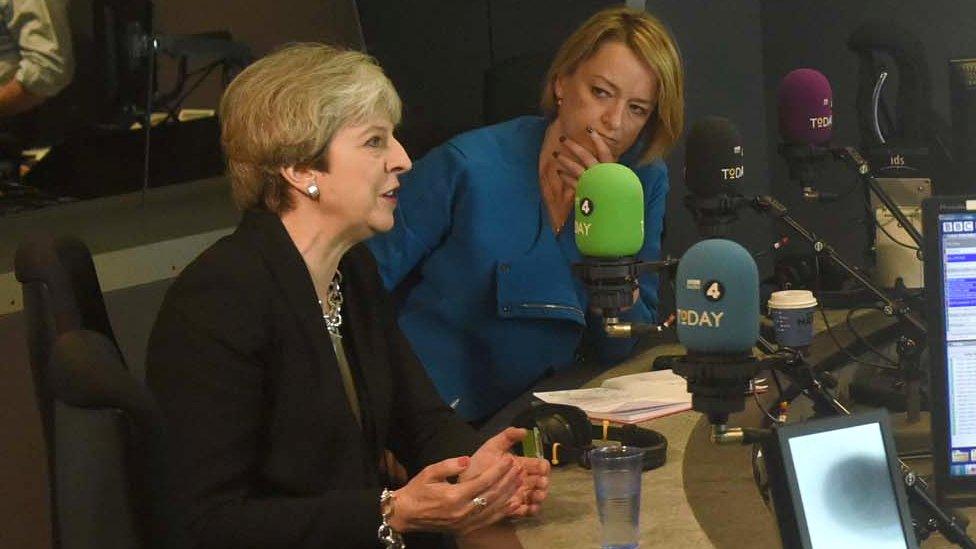
Davidson interviewed Prime Minister Theresa May and BBC political editor Laura Kuenssberg
But while she may be able to find successful women to speak to in the various sectors she's chosen, it's arguable whether certain industries will ever reach the true equality she and other campaigners are hoping for.
The week we talk, The Spectator, external has published an article suggesting there are some inherent genetic differences which mean boys and girls will always be attracted to some professions over others.
For all the efforts to get young girls more interested in subjects like science and engineering, the figures are a long, long way off being equal.
But, many argue, perhaps that's just the way men and women are, and differences between the genders should be embraced.
"I don't think you'll ever have 50/50 on everything all of the time, I think that would be weird," Davidson says.
"But do I think there's a genetic imbalance that means girls can't do physics? No I don't.
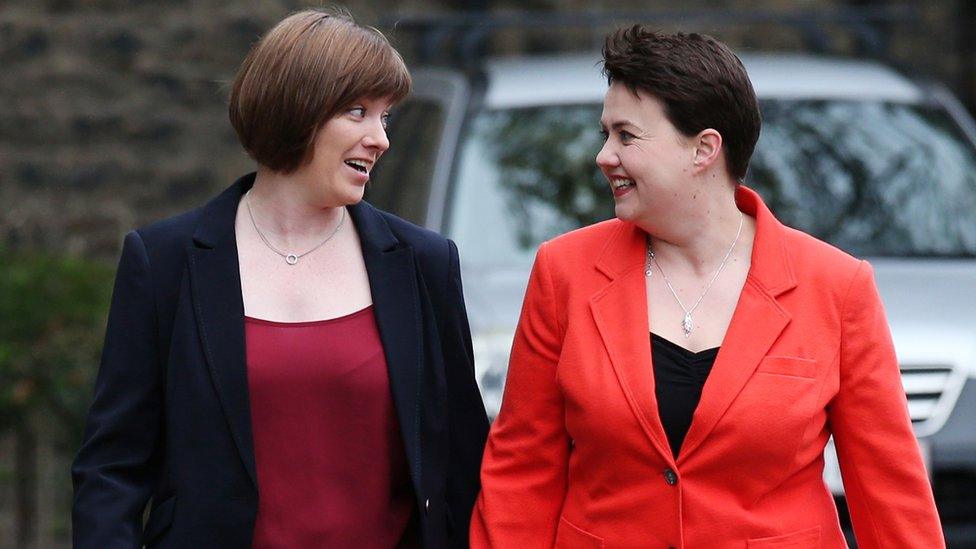
Davidson is pregnant with her first child with fiance Jen Wilson
"There are studies that have been done about where and when people start making their decisions, and that's why people who are big proponents of STEM [science, technology, engineering and maths] have ceased going into high schools and started in primary schools.
"That's where they start in terms of being able to encourage people to think that this is something open to them and is desirable and is not in some way masculine or unfeminine or any of these negative connotations."
She continues: "What's interesting is that for years, women were never allowed to study medicine, now a higher proportion of the applicants and people accepted to study medicine at university are female than male.
"So we've got to a tipping point, and it's not just about individuals getting to the top of the tree, it's about a critical mass of women getting to the point where you can't turn that tide back."
Yes She Can: Why Women Own The Future by Ruth Davidson is out now.
- Published26 April 2018
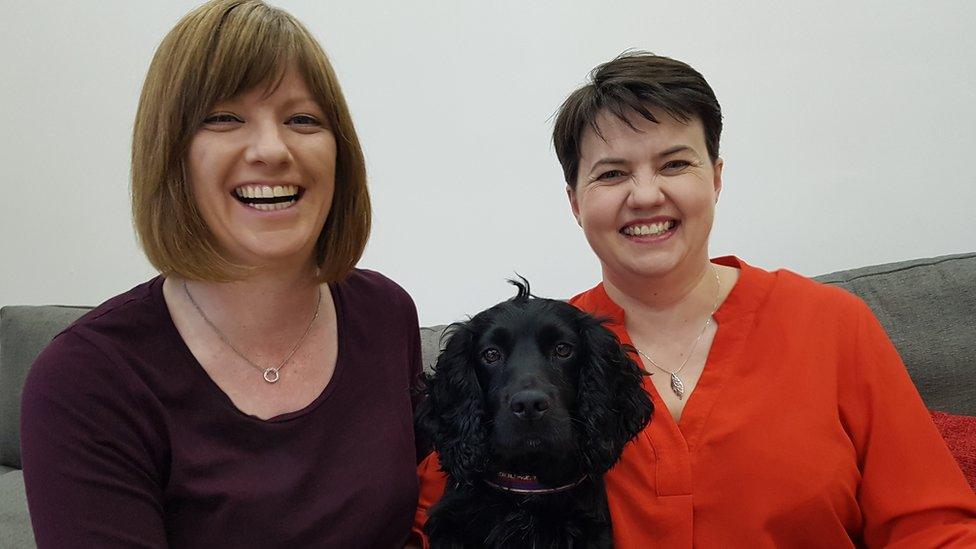
- Published16 September 2018
